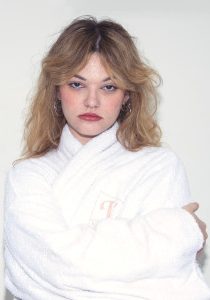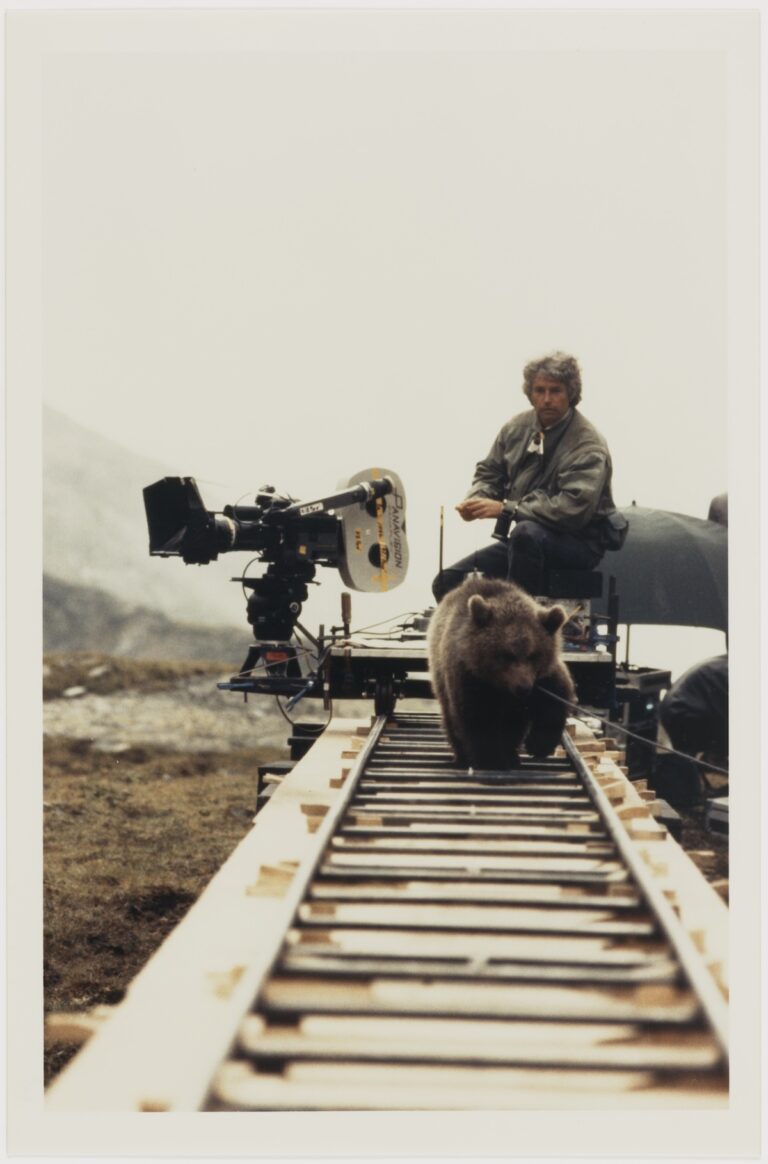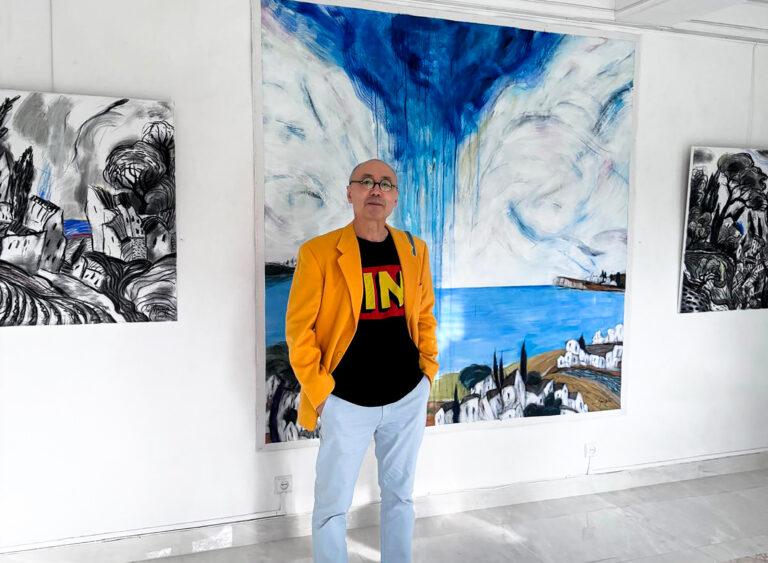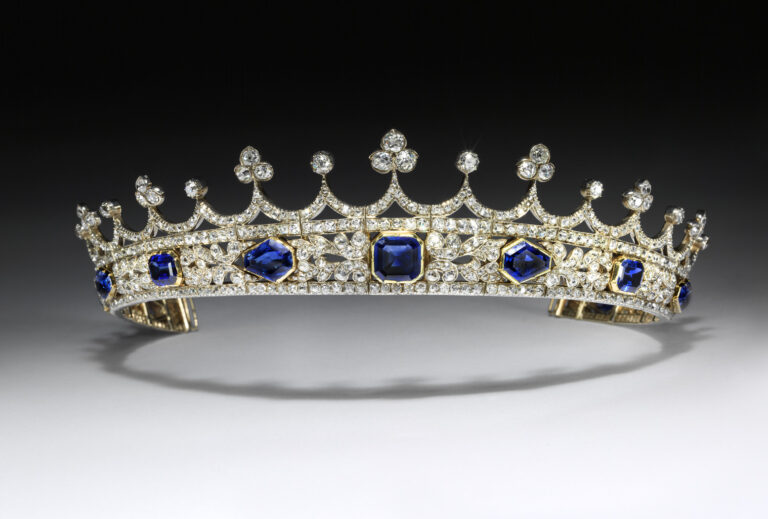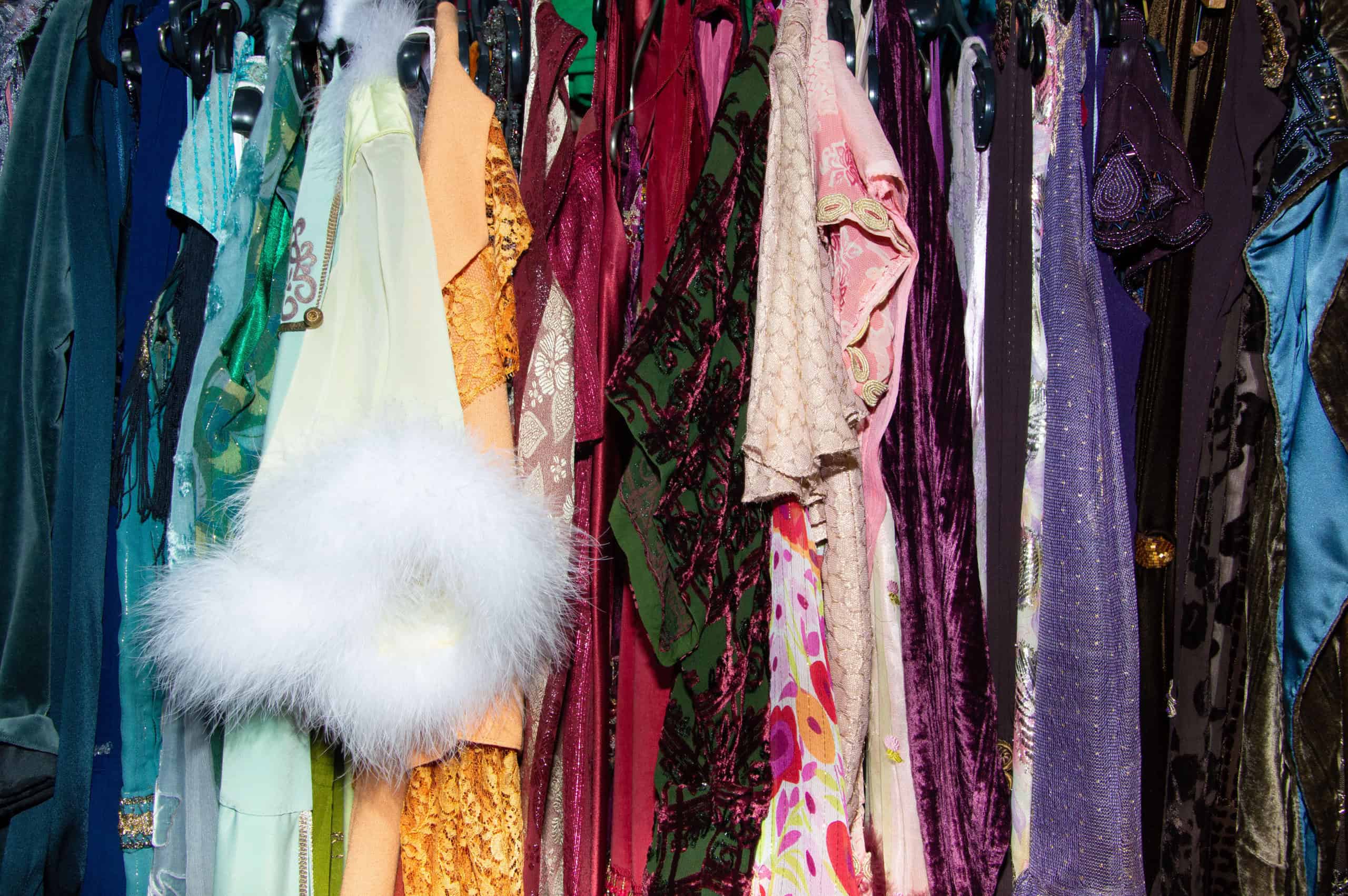
LA COMPAGNIE DU COSTUME : Behind French Costume Magic
Amélie JOUISON
IRK Magazine sat down with Mathilde and Lisa from La Compagnie du Costume to learn how this renowned atelier weaves cinematic dreams into reality. From military archives to runway collaborations, they open up about the daily grind, creative sparks, and what it takes to thrive in this niche world.
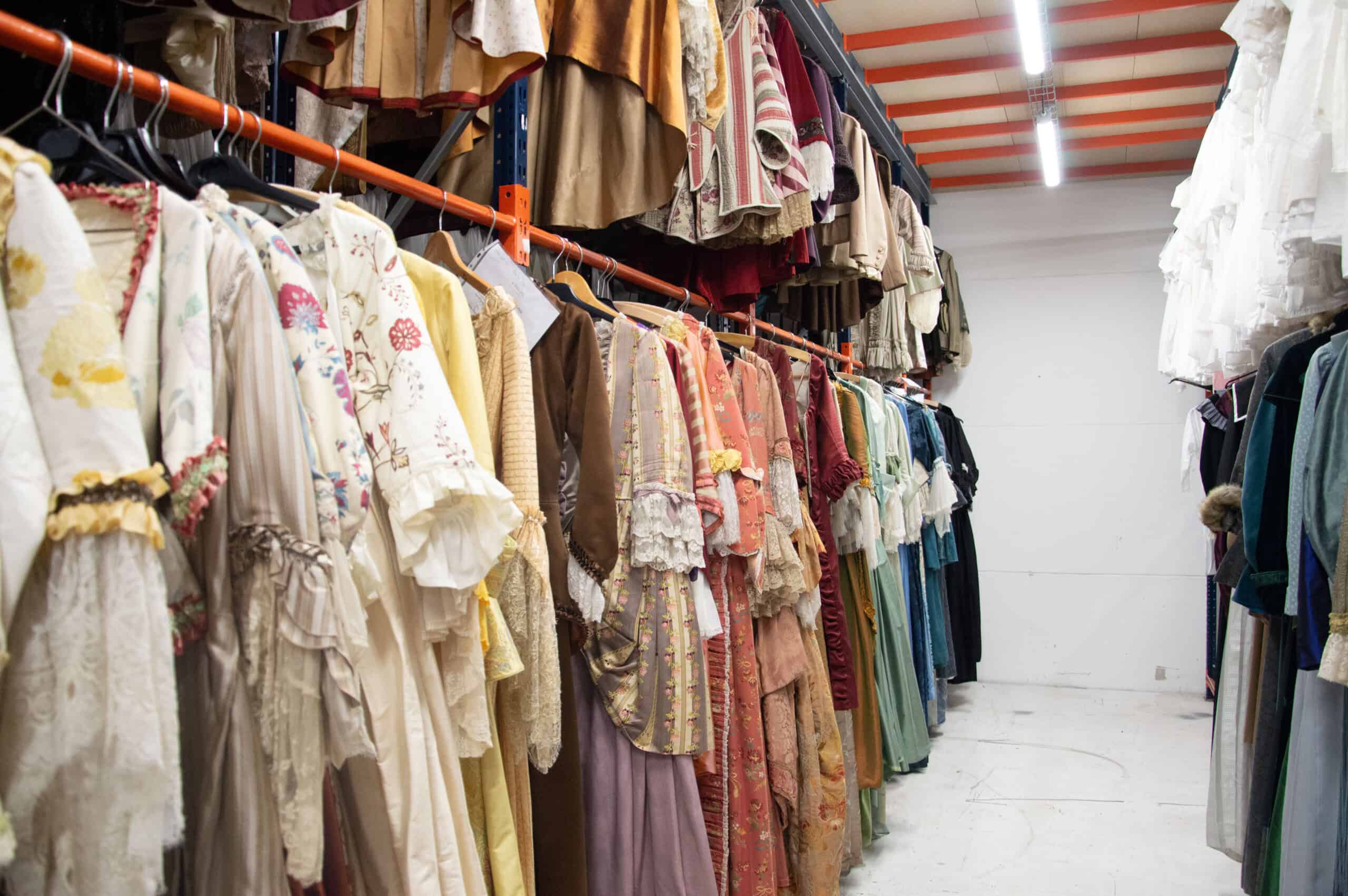
IRK: Can you tell us how you’re presenting your work here today, and what your roles are at La Compagnie du Costume?
Mathilde: I’m the project manager at the atelier, mostly for film and series clients. In cinema, productions often build temporary workshops, but they outsource part of the costume making to companies like ours. I handle projects from A to Z: quotes, admin, communication, and most importantly, I streamline the process so our costume makers can focus on what they do best.
That means planning fittings, receiving fabrics, liaising between the workshop and production. Since I’m a trained costume maker myself, I can answer many technical questions and relay others to the team. This “buffer role” is essential it saves our team time and energy.
I follow through until the end: I organize fittings sometimes abroad, like in London recently coordinate logistics, and check quality before delivery and I also work closely with Lisa, who handles visual communication. I bring the raw material photos, info, videos and she transforms it all into content for social media and the website. I’m the groundwork, she’s the polish.
Lisa: I manage all things digital: Instagram, TikTok, Pinterest, and the website. I used to be a freelancer before joining full-time, so our dynamic began as client-provider. Mathilde would share the company’s vision and needs, and I’d bring the visual communication. That balance still works great today. I work remotely from Rennes, but when I visit the atelier, we make the most of it filming, documenting, creating.
IRK: When and where was La Compagnie du Costume founded, and by whom?
Mathilde: It all began in September 2000, in a small 100 m² space in Saint-Denis. The founders were Thierry Caron and Robert d’Elia, who are still in charge today. They came from France Costumes, a subsidiary of the S.F.P. (Société de Production Française), which managed various cinema professions, from set designers to costume makers. When it shut down, the costume stock was put up for sale. Our founders purchased a small portion of it and gradually expanded the collection over time.
We moved from Saint-Denis to Aubervilliers in 2003, then to Garges-lès-Gonesse in 2005. In 2015, we opened our main site in Saint-Ouen, where we are located today. That’s also when the workshop was established. Today, our XXe century, historical, and military costume collections, along with the workshop, are all gathered in one place.
IRK: Was it created just for cinema?
Mathilde: Yes, mainly for audiovisual projects TV series, films, documentaries. And sometimes for shows. These two worlds have very different needs. Theater is about distance; cinema is about close-ups. Costumes must reflect that.
What makes us special is « made-to-hire ». A production pays a reduced fee, we make the costume using our fabric or theirs, and afterward the costume returns to our stock. That’s how our collection grows.
But that doesn’t work with theater. Theater costumes wear out quickly they’re used daily. Sometimes they don’t even last a season. Film costumes? They might be worn just once. So, the theater isn’t as sustainable for rentals. That’s why we mostly target the film industry. It’s a more sustainable cycle for costumes.
We do sell to theaters sometimes like the Lido, for instance but that’s a different model.
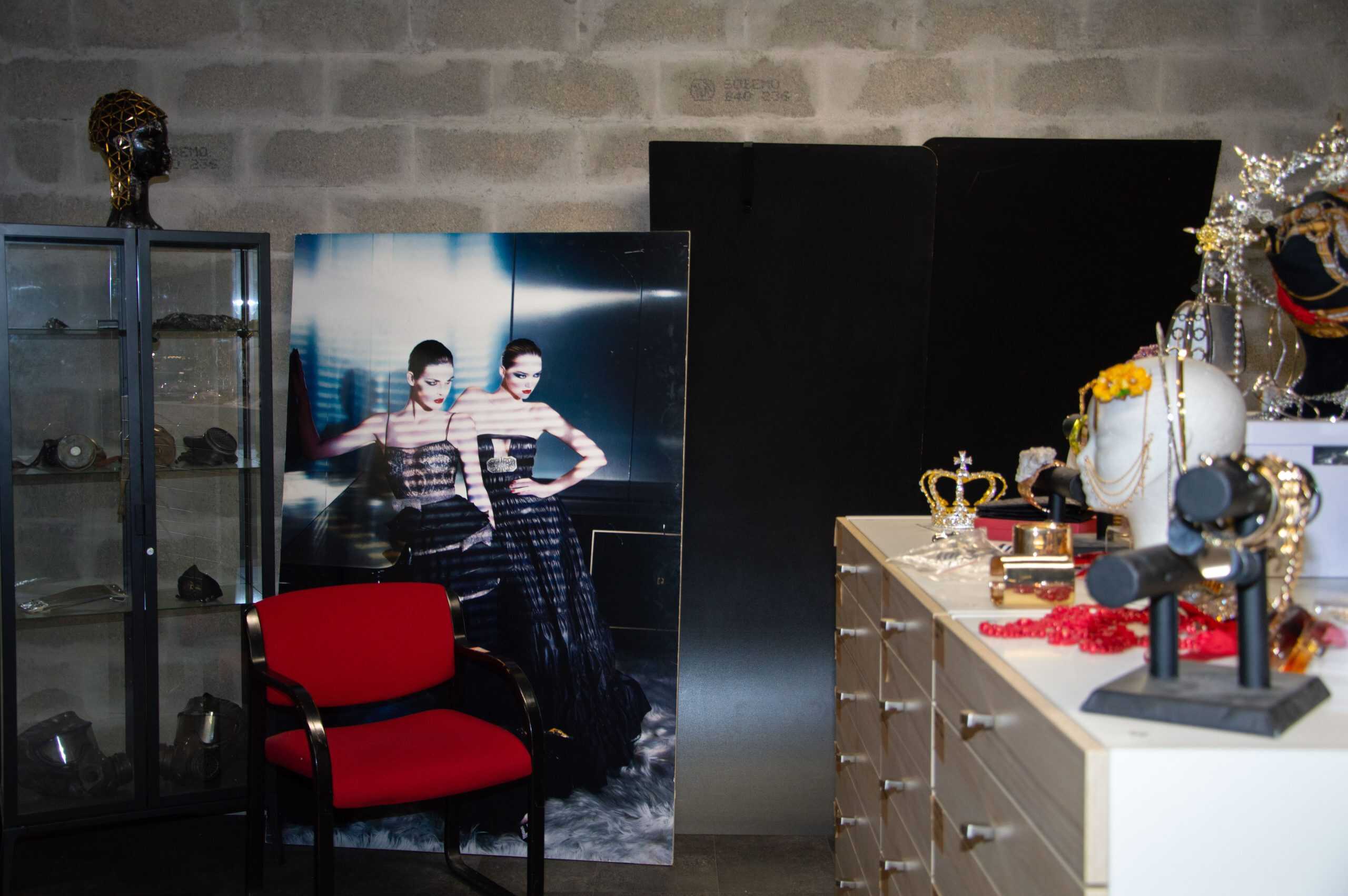
IRK: How do you build your collection? Is it always client-based, or do you create independently too?
Mathilde: Both. We respond to client needs and also make pieces for our stock. We have separate stocks for military, historical, and 20th-century costumes. Some items especially historical ones just aren’t available to buy. So we create them. If a client needs it, and we know others will too, we produce it in-house.
It’s proactive. Sometimes we just anticipate a trend or need. Other times, we build based on frequent requests.
IRK: When you make a piece, does it automatically belong to you, or do you need to buy it back?
Mathilde: As mentioned earlier, if it’s a made-to-hire, the costume belongs to us which is the case most of the time. We’ve invested in it. Occasionally, actors fall in love with a costume and ask to buy it. But these are rare cases. Some costumes have historical or archival value, and we don’t want to lose those. They can serve future productions.
A few years ago, an exceptional piece was rediscovered in our collection: the Robe Muguet by Christian Dior, created for Henri Verneuil’s film Paris Palace Hotel, released in 1956. We sold this one-of-a-kind garment to the House of Dior during an auction. The dress was later showcased to the public during the Christian Dior exhibition at the Musée des Arts Décoratifs in Paris in 2018.
IRK: You’ve expanded into fashion too. How did that happen?
Mathilde: It was already there, kind of quietly. Some stylists also work as costume designers, so they knew us and started pulling looks for editorials, shoots, music videos… It’s a different audience, with new energy. That helped us grow in new directions.
We worked a lot with Marylin Fitoussi, the costume designer for Emily in Paris. She rents a lot from us and has brought in many stylists. We even created a dedicated showroom space that works better for fashion creatives.
Costume designers usually come for historical accuracy. Stylists come with a concept and a moodboard. They want unique pieces. So we group our most visually striking items ones that are too bold for extras in one curated space.
IRK: Is there a lot of competition in this field?
Mathilde: Some, but it’s a small world. For rental and production combined, there are only three or four of us in France. And we’re one of the only ones with this level of in-house production.
What sets us apart is partly our team. Each person brings a passion. Our boss Bob is ex-military, so we have a strong military stock. Elena’s obsessed with 20th-century costume history. Richard, our Scottish colleague, is a menswear encyclopedia. That kind of love shapes a collection. It gives it character.
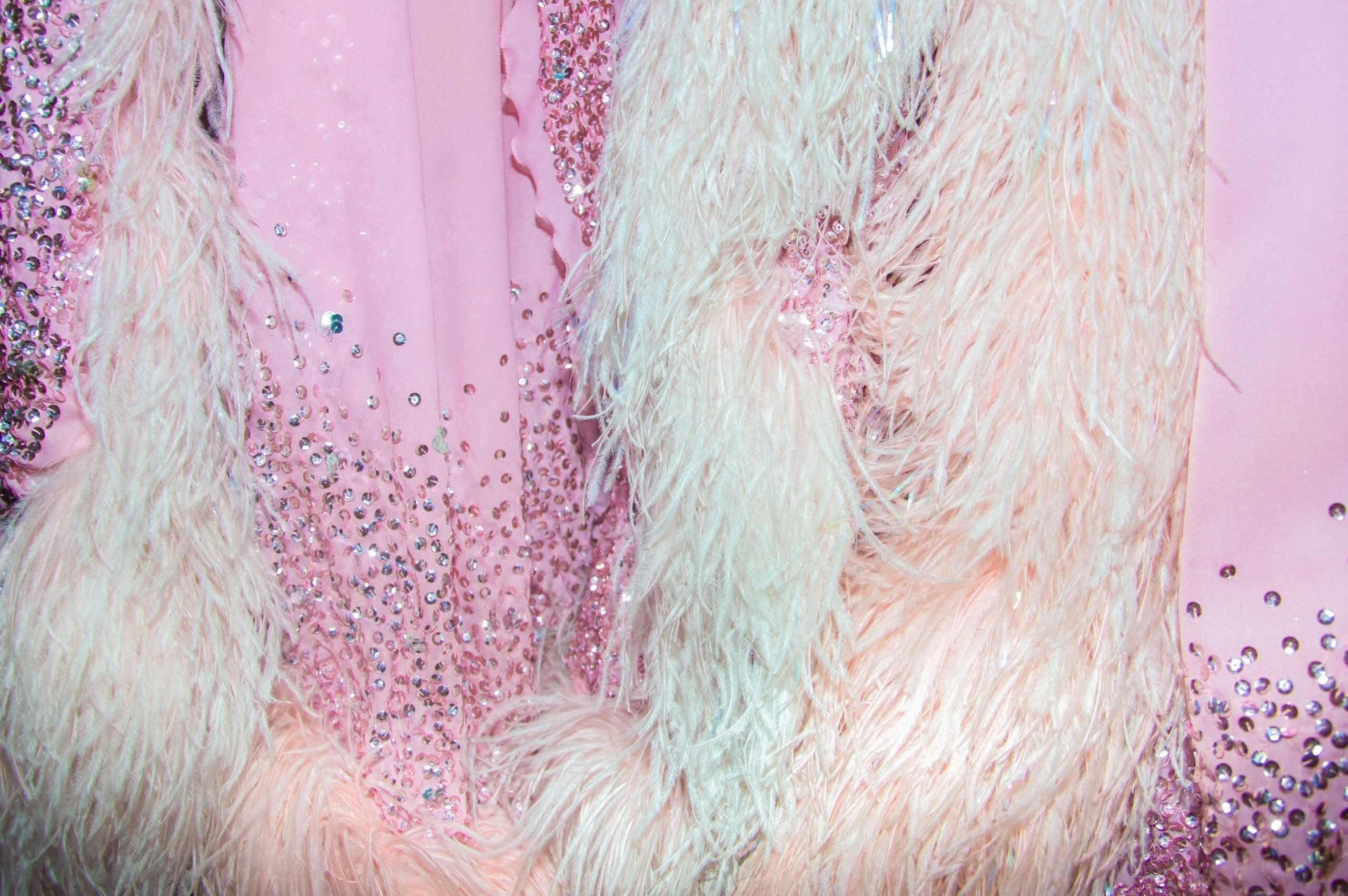
IRK: It’s true, costume work often feels mysterious and hidden.
Mathilde: It’s a closed world. But we try to stay open, to share what we do. That’s a strength. People know we produce fast, with care. And the pieces we make don’t disappear they join our stock. That’s our edge: expert makers, clear communication, and a sense of access.
IRK: Where can people follow La Compagnie du Costume’s work?
Lisa: Instagram, TikTok, Pinterest, and Facebook. We also have a website. Everything we post goes through Instagram first.
IRK: What kind of training do your team members have? And what about you, personally?
Lisa: Most of the team are costume designers.
Mathilde: That’s essential for the workshop. We also have stitchers, pattern makers, and in the stockroom, people who often started in costume and moved toward history or dressing. The stock team loves costume history.
Lisa: I studied costume design too.
Mathilde: Me too. I worked for the Paris Opera and in fashion and costume workshops.
IRK: Do you work internationally or mostly in France?
Mathilde: Mostly France and Europe. We recently worked on a British production. Foreign teams often come to France to shoot or make costumes because they know the quality we offer. Sometimes Americans too.

IRK: Do you ever travel with the costumes to the sets?
Mathilde: Not usually. We’re a private company. Once we deliver the costumes, our job ends unless we’re asked back for adjustments. We do travel for fittings, though, sometimes abroad.
Now, in military costumes, it’s different. It’s so specific that only a few experts can really do it right. In those cases, some of our colleagues go on set to assist, especially with rank insignias or uniform rules.
Lisa: Like making sure the insignias are right.
Mathilde: Exactly. They also provide staging support for military or police action scenes. But the production has its own teams on set. We step back after delivery.
IRK: Last question: what would you say to young people who want to get into costume work or any creative field?
Mathilde: You have to be persistent. But that’s true for all creative jobs. You need grit. Be ready to do every kind of task. Don’t be afraid to get your hands dirty.
Lisa: That’s what gives you depth. Going through every role builds real skills and perspective.
Mathilde: And be curious. Culture enriches your work. Don’t see yourself as just one cog in the machine. If you get involved in the bigger picture, you can bring more to the table creatively and practically.
Lisa: Don’t be scared off. It’s not as closed as it looks.
Mathilde: It can feel closed, yes, but stay open. Show interest. Be willing. Try things. Ask questions. That energy will make you stand out.
Want more ? Take a look at this article Ksenia Usacheva “Un Goût de Contemplation”
Share this post
Amélie JOUISON is a fashion photographer and art director.
She likes to question the status of the image as a woman, incorporating a point of humour, burlesque and creating discomfort.
Read Next

